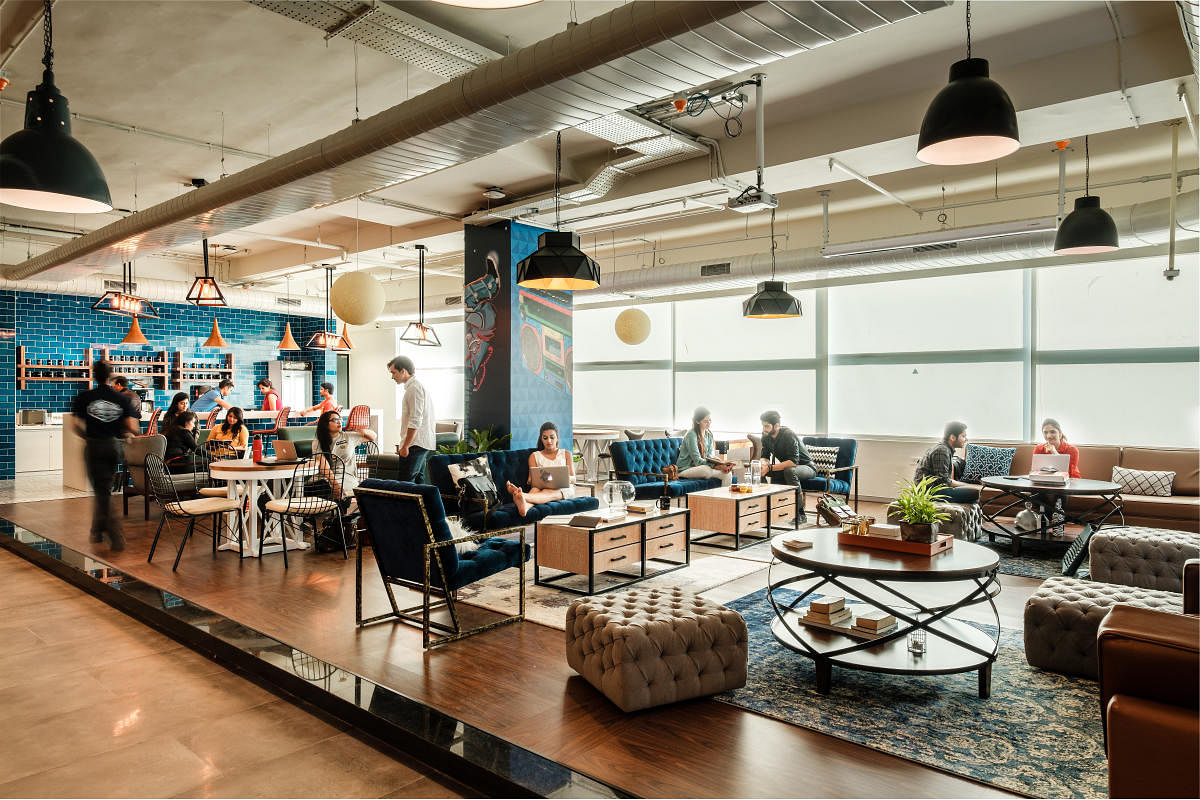
With the third wave of Covid-19 ebbing, co-working spaces are thriving again, with most experiencing 100% capacity.
“The fear that plagued people during the first two waves has died down as people are now more aware of how to deal with the pandemic. They are taking the necessary precautions and are more than okay with venturing out,” says Gurbinder Rattha, managing director, Workafella.
The Chennai-based company has one branch in Bengaluru, located on Infantry Road, and plans to launch four more by the end of 2022. “We have been at 100% occupancy capacity since February,” he says. Compared to 2021, the company has seen a 10-15% increase in customer base and Rattha believes the trend will continue to grow in Bengaluru.
“During the lockdowns, many companies let go of their office spaces. But, now as things get back to normal, these companies are now turning to co-working spaces,” he says.
CoWrks with nine centres across Bengaluru receives an average footfall of 3,000 a month. “We have seen a 42% increase in footfalls over the last three months,” says Parul Thakur, senior vice president and business head.
“Co-working isn’t a phenomenon just for start-ups. Courtesy the pandemic, companies have become more agile and employee-centric. They want to transform the office environment into a more vibrant space,” she says.
Redefining co-working
Today, co-working spaces are among the few networking spaces available in the city, says Azaan Sait, founder, The Hub Bengaluru. Located on Infantry Road, the co-working space has been at 100% occupancy for three months.
“We have a mixed bag of freelancers, entrepreneurs and bigger groups coming in. Many prefer co-working as it is flexible and allows them to meet people from diverse backgrounds,” he says. The Hub has also introduced a production space for content creation. “The pandemic made us realise that a co-working space was not just meant for corporate employees,” he adds.
As a direct result of the pandemic, the scope for the co-working sector has grown tremendously, believes Rattha.
“We are constantly coming up with better solutions for workplace management. A lot of technology is being introduced to make the space more accessible,” he adds.
Restaurants turning offices
Co-working spaces being at full capacity has led to customers like Aaishwarya N, 23, turning to restaurants and cafes with co-working packages. She says she was not able to book a slot at any co-working space around the MG Road area last month.
Yeshwantpur-based event and performance space with an in-house restaurant Bangalore Creative Circus introduced co-working in December 2021. “People were fed up working from home. On an average we get 50-60 co-working customers a week,” says Manisha Vinod, co-founder.
Social, a pub with five branches in the city, has been offering co-working packages since 2014. “Many prefer it because of the additional benefits. Like they get access to all our events,” says Ranveer Sabhani, business head-south of Impresario, which runs the pub.
Cost factor
Co-working spaces provide both long-term and short-term solutions. Larger spaces like cabins can be leased for Rs 18,000 to Rs 40,000 a month. Day passes cost between Rs 500 and Rs 700.